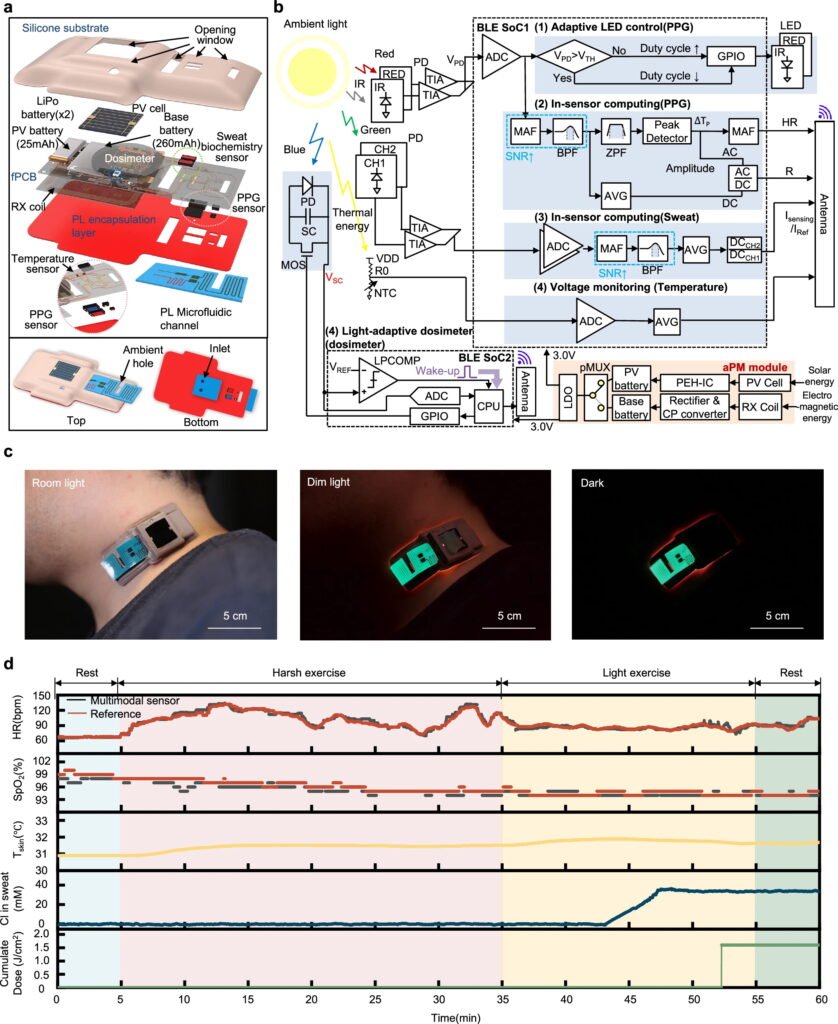Researchers from the Korea Advanced Institute of Science and Technology (KAIST) have developed a next-generation wearable platform that enables continuous health monitoring using ambient light as its primary energy source. The system integrates three complementary technologies—photometric, photovoltaic, and photoluminescent methods—to minimize battery use and extend device operation to 24 hours.
The photometric system adjusts LED brightness based on surrounding light, reducing power consumption by up to 86%. The photovoltaic system uses high-efficiency solar cells to harvest energy indoors and outdoors, while an adaptive power management module selects among 11 modes based on battery status and light availability. The photoluminescent layer stores light during the day and emits it in darkness, enabling short-term operation without external power.

The platform supports multiple sensors: A photoplethysmography sensor measures heart rate and blood oxygen, a light dosimeter measures blue light that can cause skin aging and damage, and a sweat analysis module to measure salt, glucose, and pH.
In-sensor computing reduces wireless transmission needs by 100x, sending only essential data. Tests in varied lighting conditions showed performance comparable to commercial devices. The system could shift healthcare from reactive to preventive by enabling early detection of cardiovascular issues, dehydration, and skin damage—without bulky batteries or frequent charging.
Article from KAIST: Is 24-hour health monitoring possible with ambient light energy?
Abstract in Nature Communications: Adaptive electronics for photovoltaic, photoluminescent and photometric methods in power harvesting for wireless wearable sensors

